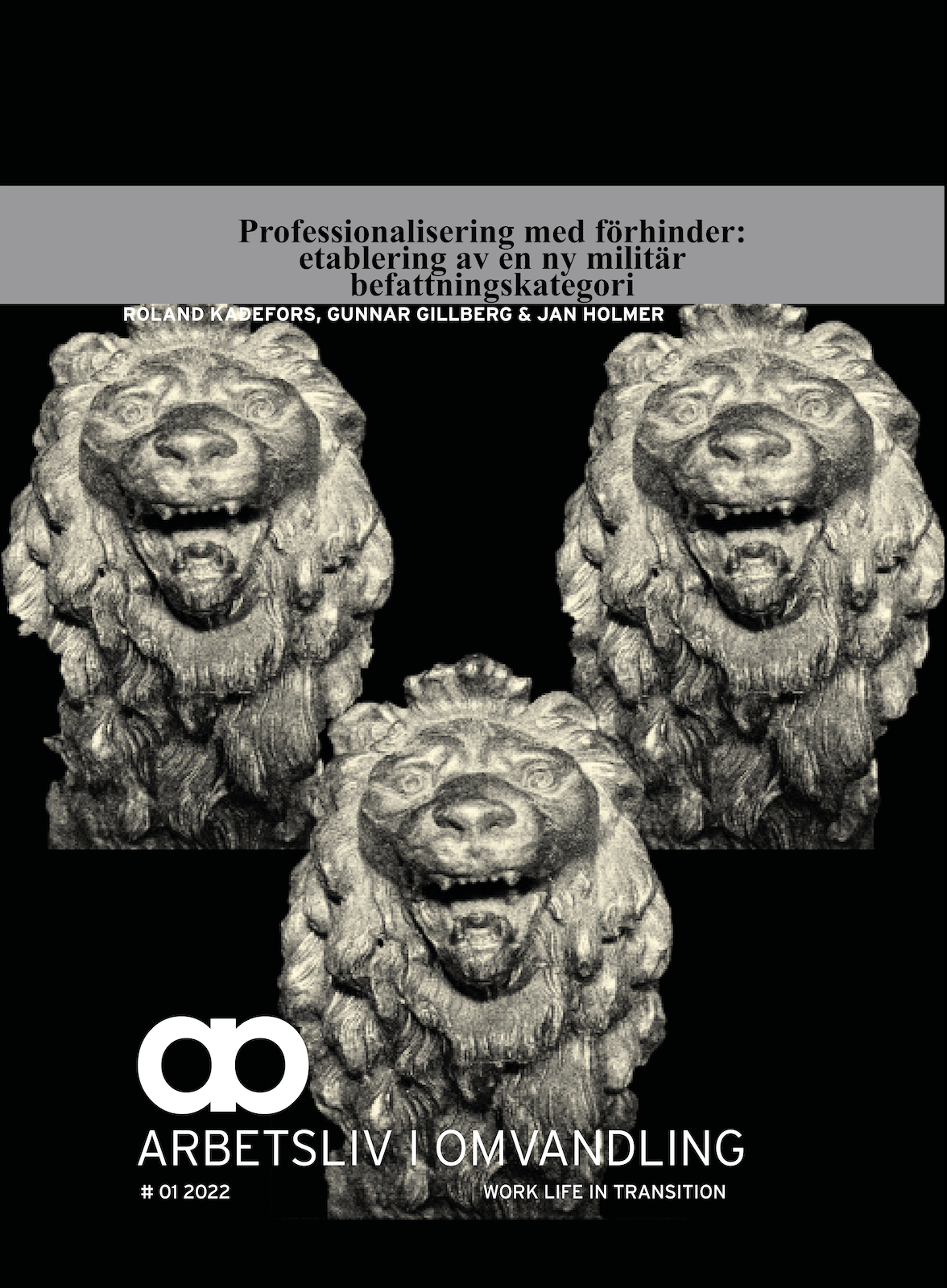Professionalization with obstacles: the establishment of a new military category
etableringen av en ny militär befattningskategori
Abstract
The development of work life affects many occupational groups, particularly in the public sector, where the technological development implies new competence and authority regulations. This makes possible also new possibilities for such groups to professionalize. We have monitored the professionalization process for specialist officers, a new category of employees in the Swedish Army, in the time period 2006-2021, documenting the obstacles that have impaired their possibilities to professionalize. We base this study on official documents including National Defence Acts, studies carries out by authorities, atricles in professional journals, and public debate on military issues. We have also interviewed 20 specialist officers with respect to how they experience the Swedish Armed Forces as an employer. Specialist officers on central positions, personnel managers, and educators from military schools were interviewed about how they value the career and wage development of specialist officers. - We have found that there is a wide gap between the official narrative "the specialist officers are the backbone of the Armed Forces" and the reality in terms of career and wage development. Fourteen years after the introduction of this new category, they can only be referred to as a semiprofession; they lack central aspects of what characterizes an established profession, and they have a rather weak position in the organization. Institutional logics that are manifest in the Armed Forces counteract the establishment of a new profession in addition to the already existing profession of officers. Even though the two categories may get along and cooperate well in the military units, is is found that there is an institutional resistance at the central level of the organization that hampers the career and wage development for the specialist officers . The officer profession shows elements of closure as well as usurpation, classical concepts in profession research. We find many similarities between the army and other organizations with classical professions: the heakth care sector (medical doctors), and the Church of Sweden (the clergy), where nurses and diacons respectively are occupational groups that much loke the specialist officers have met difficulties to professionalize due to institutional logics coloured by an already established profession.
Downloads


